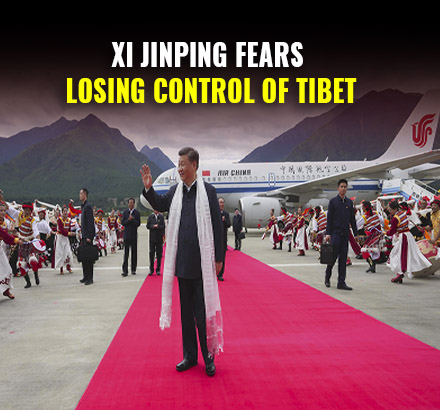The first sentence of Premier Li Peng's speech at the 96th Inter-Parliamentary Conference on September 19, 1996, said: "China has unswervingly pursued an independent foreign policy of peace…" However, Beijing's foreign policy right now is anything but peaceful, or successful. One wonders if Li Peng's words were meant to regale his august gathering.
How does one understand the medieval-style assault on Indian soldiers in Ladakh, stealing catch from Vietnamese fishermen in the South China Sea, sending ships to Japanese Senkaku Islands, using abusive language for Australia over the trade row and violating Taiwanese airspace through repeated incursions? If such actions amount to 'a foreign policy of peace,' one shudders to think what might be Beijing's foreign policy of aggression.
President Xi Jinping, who looks at himself in strongman Mao Zedong's mould, has unleashed a foreign policy that encroaches upon land and sea, and intimidates neighbors. After coming to power, he has invested heavily in the Belt and Road Initiative (BRI) and created a list of debt-ridden nations, strengthened the maritime policy to snatch away islands in the South China Sea and opened up the world to its voluble wolf warriors.
Since the coronavirus leaked out of Wuhan last year, and no one knows whether the virus spread from the much-touted wet market or escaped from the notorious Wuhan Virology Institute, the Chinese foreign policy is on the rocks. If the country thinks browbeating countries will divert global attention from its coronavirus misdeeds, it is mistaken as dozens of countries have resolved to investigate the origins of the virus.
If China thinks it can threaten India with military might and get away with it, its rulers have erred. Now that it has taken the gloves off, Indians will be cautious in dealing with an unreliable country. How can one believe the intentions of a country whose army negotiates and, simultaneously, violates a pact on the very same day? The border aggression has pushed India, which was steadfastly maintaining equidistance from contemporary powers—Russia, China and the US—into Western arms.
After having pursued the chimera of peace with China at the highest levels, India is now free to revise its relations with China. The tentacles of Chinese investment and trade run deep in India but are not such that these can't be severed steadily. China is beginning to lose the economic leverage that it enjoyed with India at a time when financials are weak globally. Combined with a poor global economy and reduced trade, every miniscule step India takes on the economic front will impact China where it hurts—rising unemployment in its hinterland.
China's foreign policy has been a failure not just with India. It has fallen flat with too many countries to not have repercussions. Heaping humiliation on Australia over the latter's calls for an investigation into the coronavirus has not endeared the communist country to the Australian leadership. Cyber-attacks and spying have further frayed relations. The Australians have signed a strategic treaty, encompassing military relations, with India and the two nations also look forward to building better trade ties.
All this will come at a cost to China. Violating Taiwanese airspace almost every day and demonstrating to the world that it prefers arm-twisting to talks, does not help add confidence to a world licking its Covid-19 wounds. The US has vowed to support Taiwan against Chinese belligerence. On the trade front, Taiwan has been wooing India with technology and IT alternatives which will pinch China somewhere done the line.
Malaysia filed a case with the UN against China in December 2019 asking it to establish the limits of the exclusive economic zone as China is a habitual violator. After consistent bullying on the high sea, Vietnam has jumped into the fray and warned that it may explore international legal options against China in the same region. China's ambitions to be accepted as a superpower are neither unknown nor denied. However, that status has to be reached through peaceful and friendly means, not thrust upon through cyber-attacks, invasions and military might.
Most of the world, barring a few regions, has emerged out of the medieval-era kingly dictates and is living in relative harmony. Xi will have to learn to make peace with neighbors. The long-standing principles of Chinese foreign policy, expressed in the Five Principles of Peaceful Co-existence—mutual respect for sovereignty and territorial integrity, mutual non-aggression, non-interference in each other's internal affairs, equality and mutual benefit, and peaceful coexistence—listed out in golden letters during the 1950s have been thrown out of the window by Xi in his efforts to contain the fallout from the coronavirus pandemic.
By repeatedly camouflaging misinformation over coronavirus through not-to-subtle diplomacy and aggressive border moves, Xi's foreign policy lies in a shambles. Perhaps it is time that Xi replaces his pack of wolf warriors with foreign policy experts who can practice the subtle art of diplomacy and make friends instead of shouting abuses and making enemies.




















